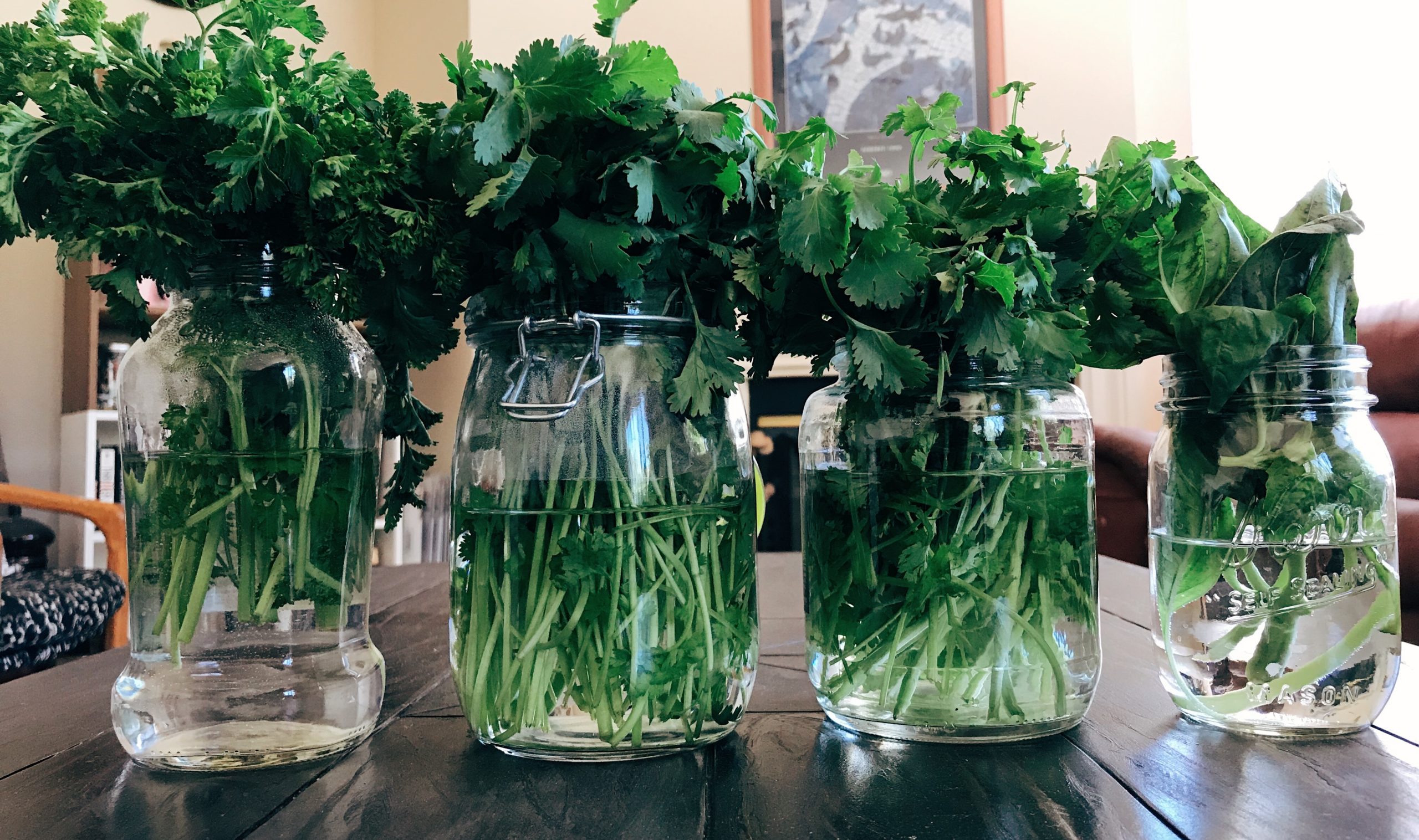Feeding picky bearded dragons means food waste multiplies like a gremlin in water. I feel guilty and I know I need to do better. I am privileged enough to afford more expensive greens, yet heedless enough to let them spoil. My guilt led me to do a little research and find these 5 tricks to keep my fruits and greens fresh!
This post may have affiliate links, which means I may receive commissions if you choose to purchase through links I provide (at no extra cost to you). Thank you for supporting the work I put into this site!
1) Separate Fruits and Vegetables
I’m going to go out on a limb here and say that most people already know this.
Some fruits and vegetables emit ethylene gas, and that speeds up the ripening process of other fruits and vegetables! Rude, but okay.
So, these are the foods that produce ethylene: apples, bananas, cantaloupe, kiwi, peaches, pears, peppers and tomatoes.
Foods that are ethylene sensitive: apples, asparagus, bananas, broccoli, cantaloupe, collard greens, cucumber, grapes, honeydew, kiwi, mangoes, peaches, pears, peppers, squash, sweet potatoes and watermelon.
Foods that are non-ethylene sensitive: blueberries, cherries, snap beans, grapefruit, oranges, pineapple, potatoes, raspberries, strawberries, tomatoes and yucca.
I’ve only included items on this list that bearded dragons CAN eat. But no worries, you can check out this PDF from the UCSD Center for Community Health if you want a full list!
2) The Paper Towel Method
Bearded dragons need leafy greens!
The trick to making greens last longer in the fridge is to a) rinse them, b) thoroughly dry them, c) wrap them in paper towels and then d) put them into a container.
It is really that easy. The paper towels absorb moisture, the container stops the leaves from being crushed and it is plastic-free!

If you don’t want to use paper towels, you can use flour sack towels as an alternative!
I read somewhere that collard, dandelion and turnip greens retain their crispness if kept in the coldest part of the fridge.
3) An Herbal Remedy
To preserve herbs, one must learn the difference between hard herbs and soft herbs.
Keeping soft herbs fresh is similar to how you would keep flowers fresh. Because they have tender stems, you snip the stem and place them upright in a jar of water.
Most soft herbs have to be stored in the refrigerator (except basil). Use plastic bags to cover the parts exposed to air Rinse and reuse the plastic baggie (this ones for you mom!).
Soft Herbs: basil, coriander/cilantro, thyme, dill, marjoram and parsley.

Hard herbs have woody stems and keep fresh with the paper towel method. Rinse, wrap and store in a cloth or loose container.
Hard Herbs: Rosemary and sage.
Hold off on rinsing your herbs until you’re ready to use them. Again, I only listed the herbs safe for our dragons.
4) Fruits: Berries
ALL berries are delicious (and expensive), so wasting even a single berry is an act of violence. Imagine my surprise when I found out that some berries are so fragile that washing them too soon could cause them to wither (not judging, I completely understand).
Some berries have a waxy bloom, a coating that protects the skin from insects and bacteria. Wash these berries before serving; blueberries, raspberries and grapes.
Wash these berries before storing them: blackberries, huckleberries and mulberries. After washing, make sure you thoroughly dry them and store them using the paper towel method.
When it comes to strawberries, I’ve read way too many opinions so I chose to share two popular methods:
- Vinegar bath (coming up) + paper towel method.
- Wait to wash until ready to serve + cut stems + store any uneaten berries using the paper towel method.

When drying your fruits and veggies you can pat them down, use a colander, or if you’re a fancy grown up, you can use a salad spinner.
5) Vinegar & Water Rinse
This is a neat little trick that not only cleans your bearded dragons’ berries (and veggies), but keeps them fresh for longer.
I was uncomfortable with the idea of rinsing my food (and my dragons food) with vinegar. I know it is a miracle product but come on, it just sounds nasty. Turns out, it is the opposite of nasty, vinegar kills bacteria and mold spores that you probably didn’t even know were there!
To accomplish this berry-lifesaving technique, you need to mix 3 parts water with 1 part vinegar. Give your berries a quick soak (just a few minutes) and then rinse them off with cold water (gets rid of the vinegar taste). Make sure they’re completely dry before you store them in a container lined with paper towels.
When I tested this, I noticed that my berries were fresh for a week longer than they normally are (and they didn’t taste like vinegar!).
I’ve only tried this with strawberries and blackberries BUT some people wash their leafy greens like this too. Separate the leaves, soak them, rinse them, dry them, and use the paper towel method.
Other foods you can wash in a diluted vinegar rinse: apples, peaches, celery, cauliflower, broccoli, and potatoes.
Did you find this article useful? Let me know by leaving a comment below or follow us on Instagram.


I am totally trying these! I cant stand how after a few days I lose a whole bunch of greens because they are wilted!!!!!
That’s awesome, let me know how they work out for you!